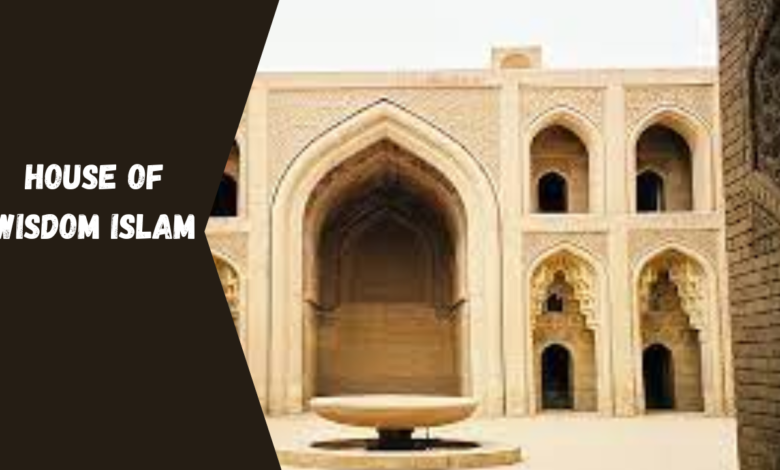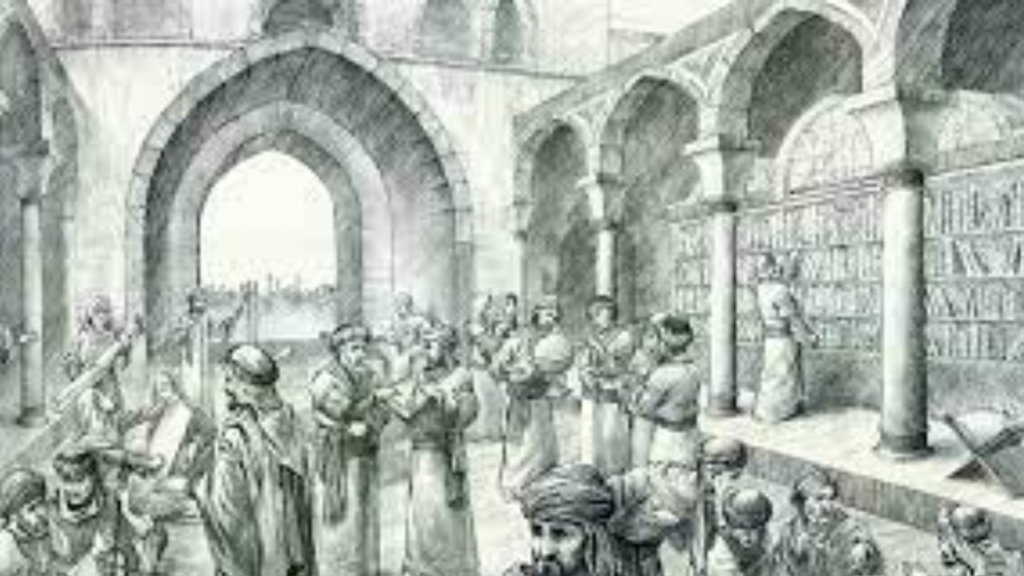
House of wisdom Islam
The House of Wisdom, also known as Bayt al-Hikmah in Arabic, was a major intellectual center in Baghdad during the Islamic Golden Age. It played a crucial role in preserving and advancing knowledge in various fields.

Introduction
The House of Wisdom, also known as Bayt al-Hikmah in Arabic, was a remarkable institution that played a pivotal role in the preservation, translation, and dissemination of knowledge during the Islamic Golden Age. Situated in the heart of the Abbasid Caliphate in Baghdad during the 9th to 13th centuries, this center of learning became a beacon of intellectual pursuit, bringing together scholars from various cultural backgrounds to collaborate, translate, and expand the frontiers of knowledge. In this article, we will explore the history, contributions, and significance of the House of Wisdom in the development of Islamic scholarship and its enduring impact on the world.
Historical Background
The establishment of the House of Wisdom can be traced back to the reign of the Abbasid Caliph Harun al-Rashid (786-809 CE), but it truly flourished during the reign of his son, Caliph Al-Ma’mun (813-833 CE). Al-Ma’mun was renowned for his commitment to intellectual pursuits and his support for scholars and scientists. Under his patronage, the House of Wisdom emerged as a dynamic center of knowledge in Baghdad.
Key Contributions
- Translation of Greek and Roman Texts: One of the most significant contributions of the House of Wisdom was the translation of classical Greek and Roman works into Arabic. Scholars at the House translated the works of Aristotle, Plato, Galen, Euclid, Ptolemy, and many others. These translations preserved the knowledge of ancient civilizations and made it accessible to scholars in the Islamic world.
- Advancements in Medicine: The House of Wisdom was a hub for medical research and scholarship. Prominent scholars like Ibn Sina (Avicenna) and Hunayn ibn Ishaq made significant contributions to medicine, pharmacology, and ophthalmology. Their works became foundational texts in these fields and were later translated into Latin, influencing European medicine during the Middle Ages.
- Mathematics and Astronomy: Scholars at the House of Wisdom made significant strides in mathematics and astronomy. The translation of works by Indian and Greek mathematicians and astronomers contributed to the development of Islamic mathematics and the advancement of algebra. Notable figures like Al-Khwarizmi played a pivotal role in these advancements.
- Philosophy and Theology: The House of Wisdom was a center for philosophical and theological discussions. The works of philosophers like Al-Farabi and Ibn Rushd (Averroes) helped bridge the gap between Greek philosophy and Islamic thought, sparking debates that continue to influence philosophical discourse today.
- Encyclopedias and Dictionaries: The House of Wisdom produced numerous encyclopedias and dictionaries, such as the “Kitab al-Hayawan” (Book of Animals) by Al-Jahiz, which provided comprehensive knowledge on various subjects. These works served as references for scholars for centuries.
Also Check
- What are some similarities between Judaism Christianity and Islam?
- Islamic converts to Christianity
- Islamic Ablution
- Islam map
- Islamic quotes
Legacy and Influence
The House of Wisdom left an indelible mark on the history of intellectual development. Its legacy is evident in the profound influence it had on subsequent Islamic scholarship, as well as its impact on the European Renaissance. Many of the works translated and produced at the House of Wisdom found their way into Europe through Arabic-to-Latin translations, helping to revive and expand intellectual pursuits in the West.
Moreover, the House of Wisdom exemplifies the Islamic tradition of seeking knowledge. It was a place where scholars from diverse backgrounds worked together, transcending cultural and religious boundaries, to advance human understanding. This commitment to learning and collaboration continues to resonate with the ideals of modern scholarship and multiculturalism.
Conclusion
The House of Wisdom stands as a testament to the rich intellectual heritage of the Islamic Golden Age. It was a crucible of knowledge that nurtured scholars, preserved ancient wisdom, and pushed the boundaries of human understanding. Its contributions in the fields of science, mathematics, medicine, philosophy, and literature continue to inspire scholars and researchers around the world. The House of Wisdom remains a symbol of the enduring value of intellectual curiosity, open-mindedness, and the pursuit of knowledge across cultures and civilizations.

(FAQs) about the House of Wisdom in Islam:
What is the House of Wisdom in Islam?
The House of Wisdom, also known as Bayt al-Hikmah in Arabic, was a major intellectual center in Baghdad during the Islamic Golden Age. It played a crucial role in preserving and advancing knowledge in various fields.
When was the House of Wisdom established?
The House of Wisdom was established during the Abbasid Caliphate, particularly under the rule of Caliph Harun al-Rashid in the 8th century. However, it reached its peak during the reign of Caliph Al-Ma’mun in the 9th century.
What was the primary purpose of the House of Wisdom?
The primary purpose of the House of Wisdom was to translate and preserve classical Greek, Roman, Persian, and Indian texts. It also served as a hub for scholars to engage in research, intellectual exchange, and translation work.
Who were some of the notable scholars associated with the House of Wisdom?
Prominent scholars like Al-Kindi, Al-Farabi, Ibn Sina (Avicenna), and Ibn Rushd (Averroes) were associated with the House of Wisdom. They made significant contributions to philosophy, mathematics, medicine, astronomy, and other disciplines.
What role did the House of Wisdom play in the preservation of knowledge?
The House of Wisdom played a crucial role in translating ancient texts into Arabic, thereby preserving the knowledge of ancient civilizations. This helped bridge the gap between different cultures and contributed to the preservation of human knowledge.
How did the House of Wisdom contribute to the advancement of science and technology?
Scholars at the House of Wisdom made important advancements in various fields, such as mathematics, where they introduced concepts like algebra and trigonometry. They also made significant contributions to astronomy, optics, and medicine.
Was the House of Wisdom limited to Islamic scholars?
No, the House of Wisdom was open to scholars of various backgrounds and religions. It promoted inclusivity and welcomed scholars from different cultures, which led to a rich exchange of ideas.
What led to the decline of the House of Wisdom?
The House of Wisdom began to decline in influence during political instability and conflicts within the Islamic world. The Mongol invasion of Baghdad in 1258 resulted in the destruction of many of its texts and contributed to its eventual decline.
Is there a modern-day equivalent of the House of Wisdom?
While there isn’t a direct modern equivalent, various institutions and universities worldwide continue the tradition of scholarly research and knowledge dissemination, much like the House of Wisdom did in its time.
What is the legacy of the House of Wisdom?
The House of Wisdom left a lasting legacy by preserving and transmitting classical knowledge to future generations. Its contributions to science, philosophy, and literature played a significant role in the development of Islamic civilization and the broader history of human knowledge.






